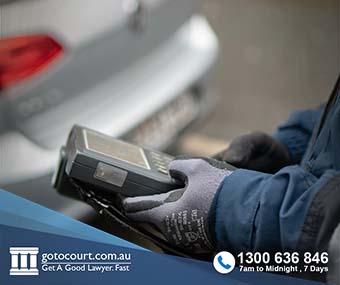No Conviction Recorded in South Australia
In South Australia there are two ways that a person who is found guilty of an offence can receive a penalty with no conviction recorded. The first is with a trifling application, and the second is with an application under section 16 of the Criminal Law (Sentencing) Act 1988, which allows the court not to impose a conviction in a range of circumstances. For this to occur the court needs to consider whether the offence warrants a fine or community service; whether the defendant is likely to commit the offence again, and if there is a good reason for not recording a conviction such as the defendant’s age, character, mental condition, the fact the act was trifling, or if the conviction is going to affect employment and travel opportunities.
What is a Trifling Application?
Section 15 of the Criminal Law (Sentencing) Act 1988 defines an offence as trifling due to either the nature of the offence, or the circumstances of the offence. However, the offence must be one in which when the legislation was written that the particular offence wouldn’t have been contemplated as falling within that category of penalties. Most often this is due to the circumstances surrounding the offence, and what occurred. There is limited use of a trifling application as it requires evidence on oath before a court can determine whether the offence is trifling.
What does it mean to have a no conviction recorded?
It is important to understand the implications of having a no conviction recorded. The police and the courts for any future offences will be able to see the penalties imposed and if a conviction was recorded. If you are applying for a job or a visa then you may either be if you have a criminal conviction; or any previous criminal charges or a criminal record. If you are asked you can answer “No” to the conviction, but must answer “yes” to having any previous charges or a criminal record.
What offences can a no conviction be recorded?
The types of offences in which a no conviction can be argued include minor first offences, or where previous convictions are irrelevant. If it is your first time being charged then you should always argue that a no conviction be recorded, especially if it is a minor offence such as shoplifting, damage to property, and possession of drugs for personal use. If you have had a no conviction for a past offence it doesn’t automatically mean that you want be given another. If the matter is of a similar nature as a previous offence then it is unlikely you will be successful. However, if the prior offence is not relevant to the matter before the court then you can argue that this offence was out of character, and put a case forward to the court for a penalty without a conviction. The court will not normally consider a no conviction if you have previous convictions, if the penalty for this offence is likely to be imprisonment, or your matter involves a licence disqualification.
What is a conviction without a penalty?
Most traffic matters will attract a conviction. Sometimes the trifling argument can be used for traffic matters depending on the circumstances of the offence. For most traffic offences the best that can be achieved is a conviction without a penalty. This is where the court does record a conviction but waives any penalty normally associated with the traffic offences. This can include waiving any loss of demerit points, and fines. The reason that S16 is not used in traffic matters is because it is hard to convince the court that you will not commit a minor traffic offence again. This is explained, as is the use of a trifling application, in the matter Brookes v Police [2014] SASC 22.
If you require legal advice or representation in any legal matter, please contact Go To Court Lawyers.




